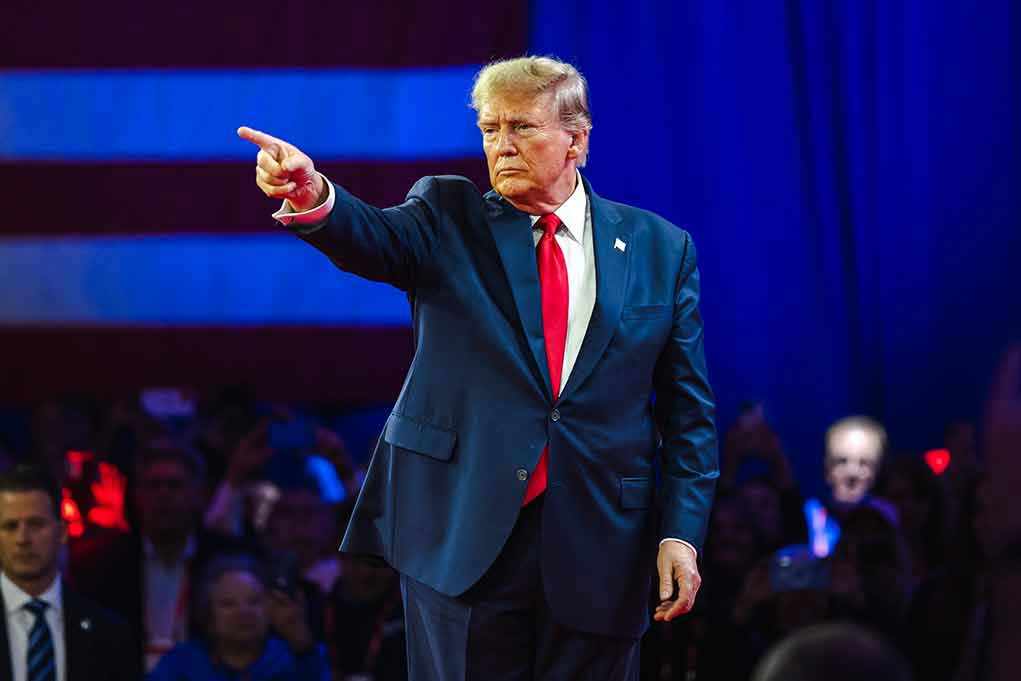
President Trump’s executive order to eliminate cashless bail nationwide reignites the battle over public safety and state sovereignty, threatening funding for jurisdictions seen as soft on crime.
Story Snapshot
- Trump signed an executive order on August 25, 2025, targeting cashless bail policies across the nation, starting with Washington, D.C.
- The administration will withhold or revoke federal funding from state and local governments that release suspects before trial without requiring cash bail.
- The order frames cashless bail as enabling crime and undermining public safety, directly challenging progressive criminal justice reforms.
- States and advocacy groups are preparing legal challenges, and debate is intensifying over federal authority and constitutional rights.
Trump Moves to End Cashless Bail: A New Public Safety Push
On August 25, 2025, President Donald Trump signed a sweeping executive order aimed at eliminating cashless bail policies in the United States, beginning enforcement in Washington, D.C. The order directs the Attorney General to identify additional jurisdictions with similar practices, setting the stage for possible federal funding cuts to state and local governments that release suspects pretrial without requiring cash bail. This move targets “soft-on-crime” policies, which Trump and his administration link directly to increased public safety risks and rising crime in cities led by left-leaning lawmakers.
The administration’s strategy leverages federal funding to force compliance, a method with precedent in other contentious policy arenas. The executive order claims special authority to intervene in D.C. due to its federal status, but the plan is to expand enforcement nationwide. This approach echoes previous federal efforts to influence state policies, like those relating to sanctuary cities or marijuana enforcement, by tying critical financial support to adherence with federal directives. Conservative critics have long argued that cashless bail allows dangerous offenders to walk free and reoffend, while supporters of reform emphasize fairness and the disproportionate impact of cash bail on the poor.
The Debate Over Cashless Bail and Its Consequences
Cash bail has deep roots in the U.S. justice system, intended to ensure defendants return for trial. Recent years have seen a wave of progressive reforms, with states like Illinois and cities like New York eliminating or restricting cash bail, especially for non-violent offenses. Reform advocates argue that cash bail criminalizes poverty and perpetuates racial injustice, but opponents point to anecdotal cases of released suspects committing new crimes as evidence of the system’s failure. Empirical studies present a mixed picture, with some showing no significant uptick in crime and others noting increases in specific categories, often clouded by other social factors.
Trump’s executive order has immediate and far-reaching implications. Jurisdictions that maintain cashless bail risk losing vital federal funds, sparking intense legal and political battles. The Department of Justice, led by Attorney General Pam Bondi, is tasked with identifying and reviewing affected areas. The specter of increased pretrial detention looms, with potential impacts on jail populations, local budgets, and low-income communities. Meanwhile, the bail bond industry stands to gain from a return to cash bail requirements, while criminal justice reformers brace for setbacks and new legal challenges.
Legal and Constitutional Challenges Ahead
The order’s enforcement raises fundamental questions about federalism and the constitutional limits of executive power. Legal experts point to the Eighth Amendment’s prohibition of excessive bail and Supreme Court precedents restricting federal coercion of state policy through funding threats. While the administration insists that public safety demands this intervention, advocacy groups are preparing to contest both the factual basis for linking cashless bail to violent crime and the legal authority for federal intervention. The result is a looming showdown in federal courts, with implications not only for bail reform but for the broader balance between local autonomy and national authority.
…seems like a commonsense idea…why coddle the criminal thugs…
Trump Signs Order Aimed at Eliminating Cashless Bail https://t.co/ITomFx3LFs
— Greg Karnes (@realGregKarnes) August 26, 2025
Despite the administration’s claims, the connection between cashless bail and crime increases remains disputed among researchers. Some studies suggest no clear link, while others highlight spikes in certain offenses. This ongoing debate fuels public frustration and sharpens partisan divides, especially as urban crime continues to dominate headlines. For many conservatives, Trump’s order represents a long-overdue correction to progressive experiments that have, in their view, compromised public safety and weakened core constitutional protections. The coming months will reveal whether the administration’s crackdown can withstand legal scrutiny and change the trajectory of criminal justice reform in America.
Sources:
What to Know About Cashless Bail and Trump’s Executive Order
Trump Signs Executive Orders to End Cashless Bail: What to Know
Executive Order: Measures to End Cashless Bail and Enforce the Law in the District of Columbia




